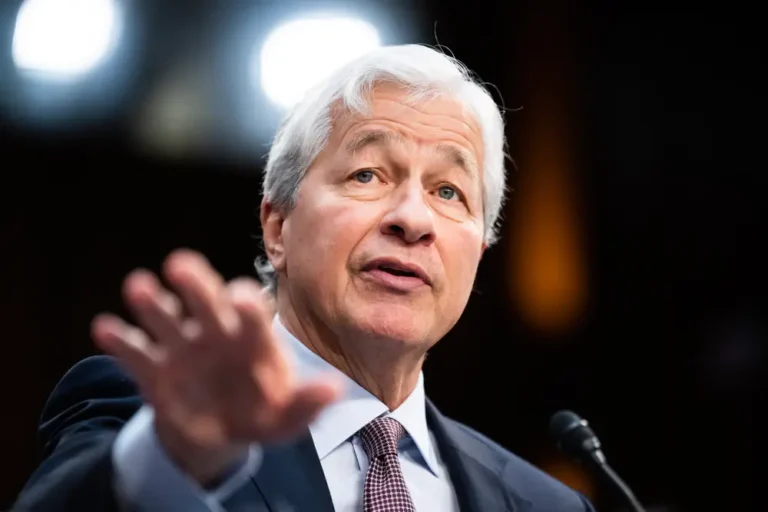3 key questions Disney analysts say CEO Bob Iger faces ahead of earnings, as concerns mount about succession and streaming profits

- Analysts are expecting another tepid quarter when Disney reports earnings on Wednesday.
- The company is facing a bevy of challenges affecting its streamers, ESPN, and long-term leadership.
- Insider spoke to analysts and experts about what they hope to hear CEO Bob Iger address.
The Walt Disney Company is facing a slew of challenges as it prepares to report second-quarter earnings on Wednesday afternoon, not the least of which is determining who will lead the company in the long run.
Longtime CEO Bob Iger returned to the top job at the entertainment conglomerate in November, succeeding the brief-lived ex-CEO Bob Chapek. When Iger returned, Disney stated that his two-year stopgap tenure would serve as a reset for the company. However, as many predicted, Disney announced last month that Iger would stay on for an additional two years beyond his initial contract, leaving him poised to step down in late 2026.
That gives him plenty of time to try to steer Disney back to more stable waters after the inevitable conclusion of the ongoing writers’ and actors’ strikes roiling Hollywood — labor movements he recently chastised for “unrealistic” striker considerations.
Iger’s return was a doctor’s order for Disney. To try to right the ship, the veteran corporate leader has made a series of controversial decisions, such as cutting 7,000 jobs to save $5.5 billion in costs.
One former Disney employee who left this year on the condition of anonymity told Insider that morale had suffered under Iger 2.0, and the layoffs were perceived as hastily implemented by many.
“When you see the things that got cut and what you imagine the rationale must have been, it seemed ill-thought-through,” this person said.
Despite his efforts, the company continues to face challenges, such as a lagging share price that has dropped more than 20% in the last year. “There’s a lot of work to be done,” Iger said in a statement last month in connection with his contract extension.
According to Peter Csathy, chairman of Creative Media and an M&A advisor, Iger’s return and contract extension are intended to pave the way for a transformative move, which he believes will be the sale of the company. Csathy believes Apple is the most logical buyer, but he does not rule out private equity as a buyer of parts of the company. Former Disney executives Tom Staggs and Kevin Mayer, who have reportedly been advising Iger in recent weeks, are backed by private equity firm Blackstone through Candle Media, the company they founded in 2021.
“What is the long game for any pure-play media company in a world where we have tech-driven media companies that are much larger than any traditional media company and operate on fundamentally different business models?” Csathy stated. “Even mighty Disney has been overshadowed by these tech-driven media companies with far greater resources.”
From the future of ESPN and Disney+ to the sale of TV and linear assets, to the all-important “s-word” (succession), industry experts and analysts told Insider there are three key questions they hope Iger will answer on Wednesday.
A Disney representative declined to comment on this story.
How can Disney get its flagship streamer, Disney+, to profitability?
One of Iger’s first moves after rejoining Disney was to divide the company into three divisions: entertainment (television, film, and streaming properties ranging from Disney+ to ABC), parks (theme parks, cruises, and merchandise), and sports network ESPN.
He’s also in charge of getting Disney+ profitable by next year.
Evercore is expecting Disney+ to report Q2 results in line with the previous quarter, when subscriptions fell 2% and losses reached $659 million, equity analysts wrote in a note ahead of earnings on July 23 — but they warned that plans for increased marketing could drive losses higher. Evercore anticipates layoffs at the streamer beginning in the fourth quarter.
Whether the company is still on track to meet its stated profitability timeline — the end of fiscal year 2024 — “is a big question,” according to Paul Verna, a principal analyst at Insider Intelligence.
“If Disney doesn’t either revise or confirm that target, obviously investors are going to ask more and more heated questions the closer that time gets,” he added.
Both Verna and David Heger, an Edward Jones senior equity analyst covering media, said the ongoing writers’ and actors’ strikes have put a halt to the development of new content at Disney and other media companies, which has likely created a welcome opportunity for cost savings. Nonetheless, the labor stoppages’ short-term cost savings are far from a panacea for Disney+’s profitability woes.
In order to become profitable, Heger suggested that Disney+ consider raising subscription prices, which currently start at $7.99 for its ad-supported tier. Iger has previously stated that the company will increase the price of monthly memberships in the future.
Iger has also stated his intention to fully own Disney’s other streaming service, Hulu, as well as purchase Comcast’s remaining stake, in order to help make Disney’s streaming business profitable. This raises the question of how quickly a deal could be completed and whether Disney would include Hulu in a potential sale of its TV and cable businesses, according to a note published on August 4 by LightShed Partners.
Another major source of uncertainty is ESPN. Iger previously stated that the company is looking for partnerships to assist the sports network in transitioning to a direct-to-consumer streaming model.
Meanwhile, Disney has entered the sports betting market, announcing this week that ESPN has signed a 10-year agreement with gambling company Penn Entertainment to launch an ESPN Bet platform. According to Yahoo Finance, the new venture will operate in more than a dozen states where Penn operates mobile sportsbooks.
The $2 billion cash and stock deal represents a critical step for Disney in its embrace of sports betting, which it has been contemplating for years but has been hesitant to act on due to concerns about how gambling would impact its family-friendly image. Penn’s ownership of Dave Portnoy’s Barstool Sports was terminated as a result of the transaction, which was completed prior to the announcement of the ESPN deal.
Nonetheless, speculation persists that Disney would be better off selling the sports property entirely, given the difficulty of creating a compelling enough streaming sports service for fans to succeed, as well as the ongoing cost of sports rights.
Will Disney sell TV assets like ABC? And who could buy them?
In July, Iger sparked speculation about who might buy Disney’s TV and cable businesses, such as ABC and National Geographic, when he told CNBC that those no-growth businesses “may not be core” to the company and that it would look “expansively” for opportunities for them.
According to Heger, Iger’s remarks may have signaled to shareholders that “everything was under consideration, or there was nothing that would be off-limits.” However, the analyst added that it is difficult to predict who the best buyer for such assets might be.
Private-equity firms have been identified as potential buyers of Disney’s television assets by industry observers. LightShed Partners predicted that Disney would spin off its TV assets into a separate entity rather than finding a buyer willing to pay a compelling price for them (without ESPN). Whatever happens will reveal whether Disney wants to remain a family-focused provider or sees itself as a general-entertainment player, as it has done with Hulu; Iger has been inconsistent in his comments on this front over the past year.
Verna told Insider that he was skeptical that private-equity firms, which aim to acquire, fix up, and then sell businesses after a few years, would want to buy Disney’s TV assets. After all, the linear TV industry is under siege, so it’s unclear whether such investments would be a wise long-term bet.
“When you’re buying into a business that’s suffering not because of mismanagement, but because the entire industry around it is dwindling,” he said, “I don’t see the upside for a private-equity deal, and I don’t see the upside for any competitor to come in and buy it.”
Along with the ongoing decline of linear TV, it’s been a weak upfront TV selling season, and Evercore said in a July note that it cut its earnings estimate for Disney by 11%, owing in part to weaker linear advertising.
The S-word: Who’s going to prevail in Disney’s succession saga and be its next CEO?
Perhaps the most long-term question for Disney is who will lead it after Iger’s second tenure ends.
The race is heating up, with many seeing the co-chairs of Disney’s entertainment unit, Dana Walden and Alan Bergman, as front-runners, as Insider previously reported. In late July, the succession saga took an unexpected turn when Puck reported that Iger had hired former top Disney executives Kevin Mayer and Tom Staggs to consult “on the future of the linear properties” such as the company’s TV assets and ESPN.
The two former Disney executives were both CEO contenders. Staggs, who was previously Disney’s CFO, COO, and top Parks executive, left the company in 2016. Mayer left in 2020 to lead TikTok for a few months. Both are now employed by Candle Media.
Heger speculated that the two Disney veterans’ return could be a “trial run of sorts.” If Iger seeks their advice, “could it position one of them to be a contender?” he wondered, adding that their unexpected hiring could be “somewhat disappointing” for internal figures thought to be in line for the throne, such as Walden and Bergman.
However, rather than assuaging investors’ concerns about Disney’s future, both Heger and Verna believe Iger’s two-year extension may exacerbate them. It implies that the company lacks a clear successor to whom he could pass the torch.
Verna warned that naming a successor too soon could lead to other problems, such as labeling Iger a “lame duck” or ruling out other potential candidates, but added, “You do have to be transparent about the process, and I don’t think they have been.” One antidote he proposed is giving shareholders more insight into behind-the-scenes machinations, such as announcing whether Disney has hired a search firm or Iger committing in no uncertain terms that he will not stay on after 2026.
“If there’s a kind of wishy-washy answer to that question,” Verna explained, “then people would be right to wonder: ‘Is this guy for real?'”






